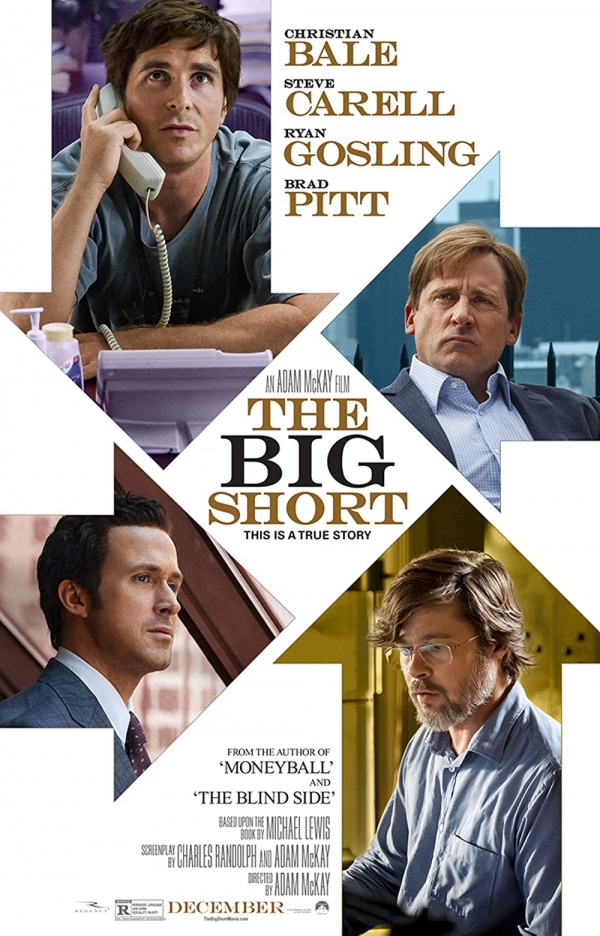
The Big Short (2015) is a biographical drama film which portrays how a few financial industry professionals predicted the real estate bubble before the subprime mortgage loan collapse in 2008. Few investors were aware that the U.S. housing market was built on a bubble that might burst within a few years. The film explores the stories of these investors separately but also in parallel.
Synopsis
Michael Burry, a manager of the hedge fund Scion Capital, carefully analyzes the data of the subprime mortgage loan, a financial product designed to offer unlimited home loans to credit borrowers who lack the ability to repay. Moreover, Burry realized that raised interest rates accompanied with the bubble bursts in real estate prices will result in the bankruptcy of financial companies. In response, Burry created a new kind of financial product, a credit default swap, which would allow him to short the housing market—sell positions on the assumption that housing prices will drop. The banks argued that the real estate market is firm, and made fun of Burry.
Mark Baum, also a hedge fund manager, recognized that high-risk, poorly structured loan packages known as Collateralized Debt Obligations (CDOs) received AAA ratings from credit rating agencies. This implied a high degree of safety, which CDOs did not deserve. Baum concluded that the housing bubble will burst shortly, and took a short position in the housing market.
Two young ambitious investors, Charlie Geller and Jamie Shipley, discovered a paper about credit default swaps. They sought advice from the retired banker Ben Rickert, and made successful bets on the housing market.
Including Burry, who ended up producing 489% returns by taking a short position against the housing market, the investors literally “hit the jackpot”. The housing market completely collapsed, and the derivative subprime mortgage loan market collapsed.
Opinion
The film starts with a quote from Mark Twain: “It ain’t what you don’t know that gets you into trouble. It’s what you know for sure that just ain’t so.” The banks of Wall Street were confident that they were in complete control of the market; in fact, they were not. The banks did not have proper understanding of the financial derivatives they made, and were trapped in a bubble of their own narrow knowledge. Eventually the bubble burst, and the result was terrible: the collapse of the American economy.
Despite its humorous production and dramatic ending, The Big Short (2015) is neither a comedy nor a happy-ending film. It is a total tragedy. From the beginning, where the characters learn about the bubble in the subprime mortgage loan market, the viewers know by intuition that the characters will hit the jackpot. However, it does not a pleasant feeling of victory. As Ben Rickert criticizes to the two young investors who did not understand the situation properly, “If we are right, people lose homes. People lose jobs. People lose retirement savings and people lose pensions. Do you have any idea what you just did? You just bet against the American economy. Stop dancing.” Rickert’s quote shows that their victory displays bitterness rather than thrill.
The film criticizes the characters for just looking on without doing anything to stop the collapse of the market. The bitter-looking main characters, despite their huge profits from the financial market by fully exploiting the problems of the market, tell more than a story of a few geniuses: stop dancing on others’ misfortune.


